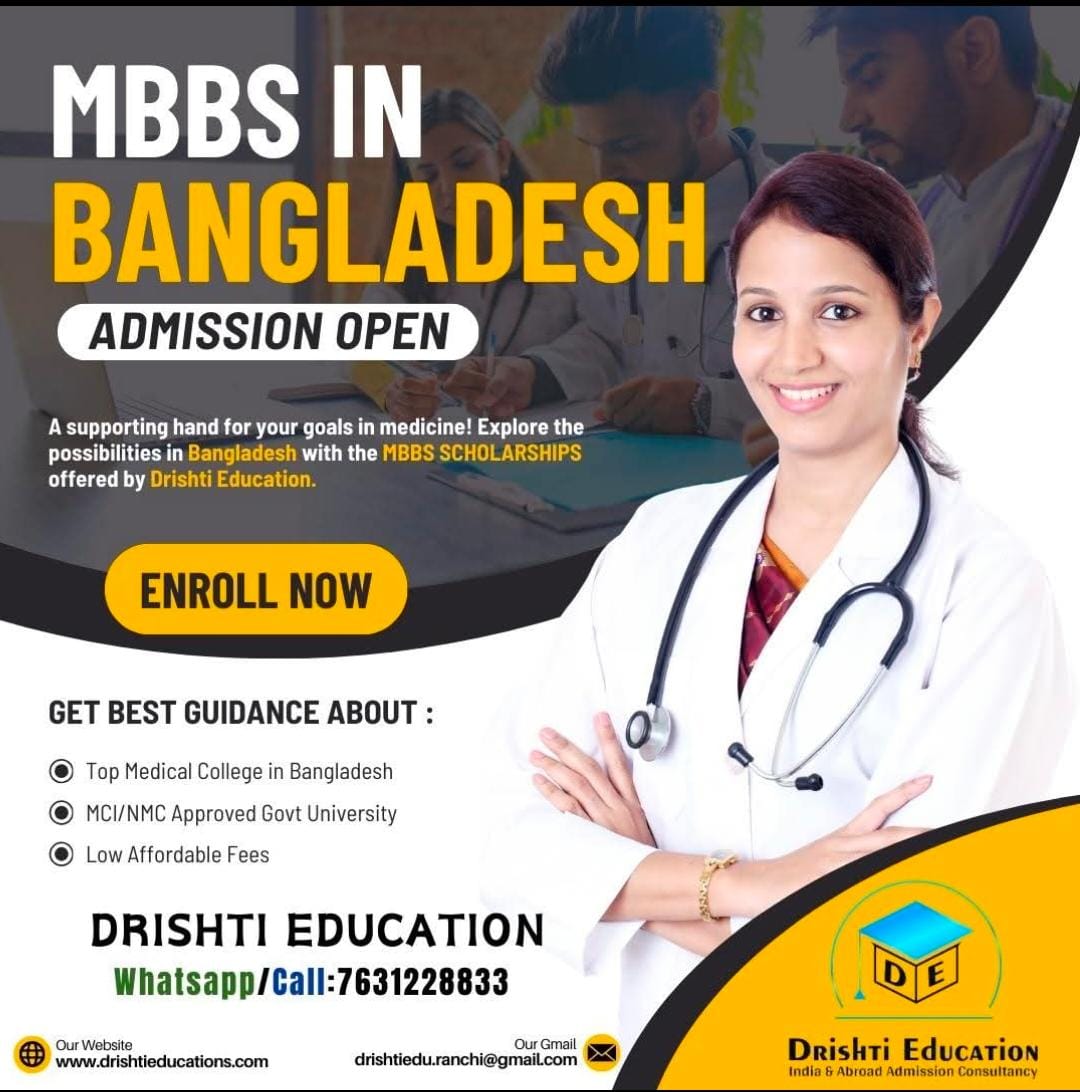Bachelor of Medicine and Bachelor of Surgery (MBBS): Your Path to Becoming a Doctor
Aspiring doctors embark on this rigorous yet fulfilling journey to acquire the skills, knowledge, and experience necessary to provide life-saving care to patients worldwide. This blog delves into the essentials of the MBBS program, its structure, eligibility, career prospects, and why it remains a top choice for medical aspirants.
What is the Bachelor of Medicine and Bachelor of Surgery (MBBS)
The Bachelor of Medicine and Bachelor of Surgery is a professional undergraduate program designed to equip students with theoretical knowledge and practical skills in medicine and surgery. The degree is internationally recognized and forms the foundation for practicing as a medical doctor. It typically spans five to six years, depending on the country and institution, and includes rigorous coursework, clinical training, and internships.
Eligibility Criteria for MBBS
Admission to an MBBS program is highly competitive and requires meeting specific eligibility criteria. While these requirements may vary slightly across institutions and countries, the general criteria include:
- Educational Qualifications:
- Completion of 10 2 or equivalent with Physics, Chemistry, and Biology as core subjects.
- A minimum aggregate score of 50-60%, depending on the institution.
- Entrance Exams:
- Clearing medical entrance exams such as NEET (National Eligibility cum Entrance Test) in India, MCAT in the USA, or other region-specific tests.
- Age Limit:
- Candidates typically need to be at least 17 years old at the time of admission.
- Language Proficiency:
- Proficiency in English may be required for international students.
Structure of the MBBS Program
The MBBS curriculum is meticulously designed to cover various aspects of medical science and practice. It is usually divided into three phases:
- Pre-Clinical Phase (Years 1-2):
- Focuses on foundational subjects such as Anatomy, Physiology, and Biochemistry.
- Involves extensive laboratory work and theoretical learning.
2. Para-Clinical Phase (Years 3-4):
- Covers subjects like Pharmacology, Pathology, Microbiology, and Forensic Medicine.
- Introduces students to the clinical environment through hospital visits.
- Clinical Phase (Years 4-6):
- Involves hands-on clinical training in various medical disciplines such as General Medicine, Surgery, Paediatrics, Obstetrics, and Gynaecology.
- Includes a compulsory one-year internship where students work under supervision in hospitals.
Skills Acquired During MBBS
Pursuing a Bachelor of Medicine and Bachelor of Surgery equips students with a diverse skill set essential for medical practice:
- Clinical Skills: Diagnosing and treating patients, performing minor surgeries, and conducting medical procedures.
- Analytical Thinking: Interpreting diagnostic reports and making evidence-based decisions.
- Communication Skills: Building patient rapport and effectively conveying medical information.
- Teamwork: Collaborating with healthcare professionals for holistic patient care.
- Ethics and Empathy: Upholding medical ethics and showing compassion toward patients.
Career Opportunities After MBBS
Graduates with a Bachelor of Medicine and Bachelor of Surgery have a plethora of career options in healthcare. Some of the most popular pathways include:
- Postgraduate Specialization:
- Pursue an MD (Doctor of Medicine) or MS (Master of Surgery) to specialize in areas such as Cardiology, Neurology, or Orthopedics.
- Clinical Practice:
- Work as a General Practitioner (GP) or establish a private practice.
- Hospital Jobs:
- Join public or private hospitals as a resident doctor, surgeon, or specialist.
- Research and Academia:
- Contribute to medical research or teach in medical colleges and universities.
- Public Health and Administration:
- Engage in policymaking, healthcare management, or community health programs.
Challenges and Rewards of Pursuing MBBS
While the journey to earning a Bachelor of Medicine and Bachelor of Surgery is demanding, it is equally rewarding. Students face challenges such as long study hours, high-pressure environments, and emotionally taxing situations. However, the opportunity to save lives, alleviate suffering, and contribute to society makes it all worthwhile.
Why Choose MBBS?
- Noble Profession:
- Being a doctor is one of the most respected and impactful professions globally.
- Global Opportunities:
- An MBBS degree is recognized worldwide, allowing graduates to practice in various countries (subject to licensing exams).
- Diverse Career Paths:
- From clinical practice to research and teaching, the possibilities are vast.
- Job Security and Growth:
- The healthcare industry offers consistent demand for qualified doctors, ensuring job stability.
- Personal Fulfillment:
- The ability to make a tangible difference in people’s lives is deeply satisfying.
Tips for Aspiring MBBS Students
- Prepare Early: Start preparing for entrance exams during high school.
- Stay Disciplined: Maintain a consistent study schedule and seek guidance from mentors.
- Develop Soft Skills: Work on communication, empathy, and problem-solving abilities.
- Stay Updated: Keep abreast of advancements in medical science and technology.
Conclusion
The Bachelor of Medicine and Bachelor of Surgery is more than just a degree; it is a journey of dedication, perseverance, and a commitment to serving humanity. For those with a passion for science and a genuine desire to make a difference, pursuing an MBBS can be a life-changing decision. With its vast career prospects and the promise of personal and professional growth, MBBS remains one of the most esteemed programs in the world.



